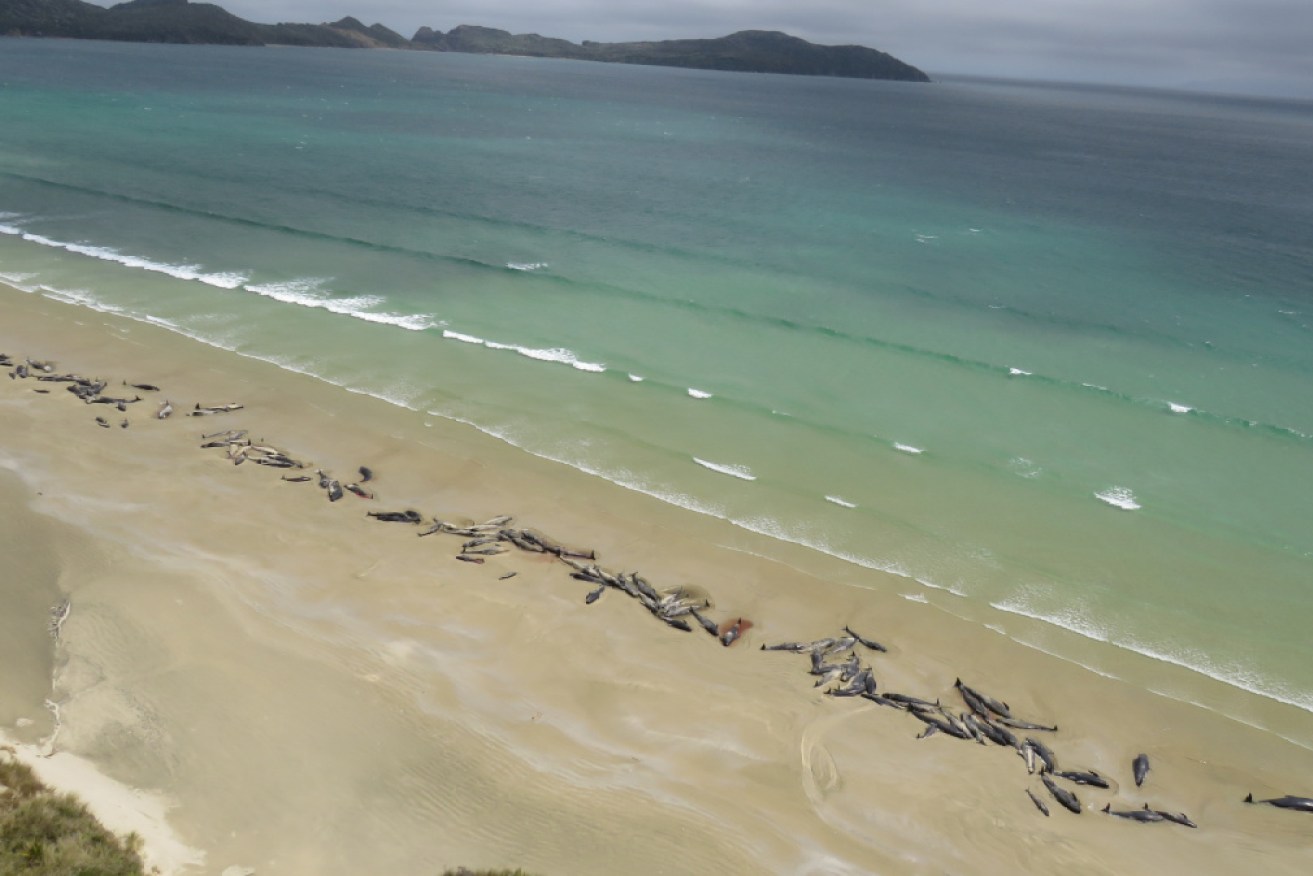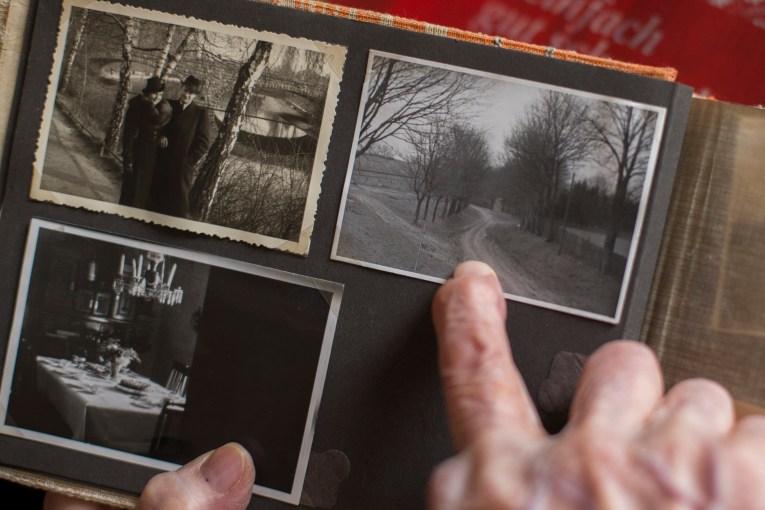Tragedy as 145 stranded pilot whales die on remote NZ beach


In 2018, a rescue operation was launched to get 145 pilot whales stranded near Mason Beach in New Zealand back out to sea. Photo: AAP/Department of Conservation
Mystery surrounds the death of up to 145 pilot whales on a remote beach on New Zealand’s southernmost island.
NZ’s Department of Conservation was notified by a camper at 10.30pm on Saturday that two pods had been stranded at the southern end of Mason Bay, about two kilometres apart on Rakiura/Stewart Island – which is about 30 kilometres south of the South Island.
Rakiura operations manager Ren Leppens said half of the whales had already died and a decision to euthanise the others was made due to their condition and the difficult-to-access location.
“Sadly, the likelihood of being able to successfully re-float the remaining whales was extremely low,” Mr Leppens said.
“The remote location, lack of nearby personnel and the whales’ deteriorating condition meant the most humane thing to do was to euthanise. However, it’s always a heart-breaking decision to make.”
DOC worked with the local Ngāi Tahu iwi (Maori tribe) on the next steps for the whales to be blessed.
Project Jonah general manager Daren Grover said stranded whales required prompt attention due to predator and seagull attacks, dehydration, and the onset of heat exhaustion.
Stuff.co.nz reported that more than 650 pilot whales beached themselves along Farewell Spit at top of the South Island in separate mass strandings last year, the largest of its kind in NZ for almost a century.
The biggest recorded pilot whale stranding was an estimated 1000 whales at the Chatham Islands in 1918.

Pygmy killer whales are being transferred to Rarawa beach for a re-float attempt on Tuesday. Photo: Project Jonah NZ/Facebook
In better news, hope remains for eight pygmy killer whales stranded in a separate incident south of Te Paki Stream at Northland.
A total of 10 whales were stranded at 90 Mile Beach on the west coast on Sunday. Two died, but DOC is anticipating re-float attempts at Rarawa beach on the east coast will be made at high tide around 12.30pm on Tuesday.
“The whales will have the best chance of a successful re-float if they are all together, which they are not at this stage,” DOC said in a Facebook post on Monday. “We are working to move them closer together to ensure a successful re-float tomorrow.”
DOC said its response teams are working with Project Jonah New Zealand, Whale Rescue and iwi to co-ordinate a response.
DOC said the reason why whales and dolphins strand is not fully known but factors can include sickness, navigational error, geographical features, a rapidly falling tide, being chased by a predator, or extreme weather. More than one factor may contribute to a stranding.
Marine mammal strandings are a relatively common occurrence on NZ shores, with DOC responding to an average of 85 incidents a year – mostly involving single animals.
DOC said a number of strandings occurred on the weekend but they were unlikely to be related.
A 15-metre male sperm whale that beached in Doubtful Bay on Karikari Peninsula in Northland on Friday died overnight on Saturday.
A dead female pygmy sperm whale also washed ashore at Ohiwa over the weekend.








